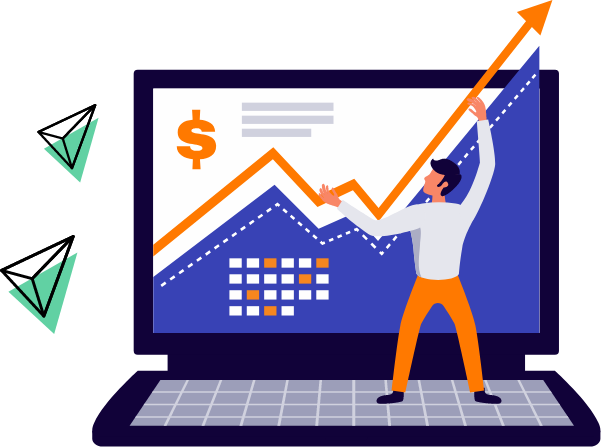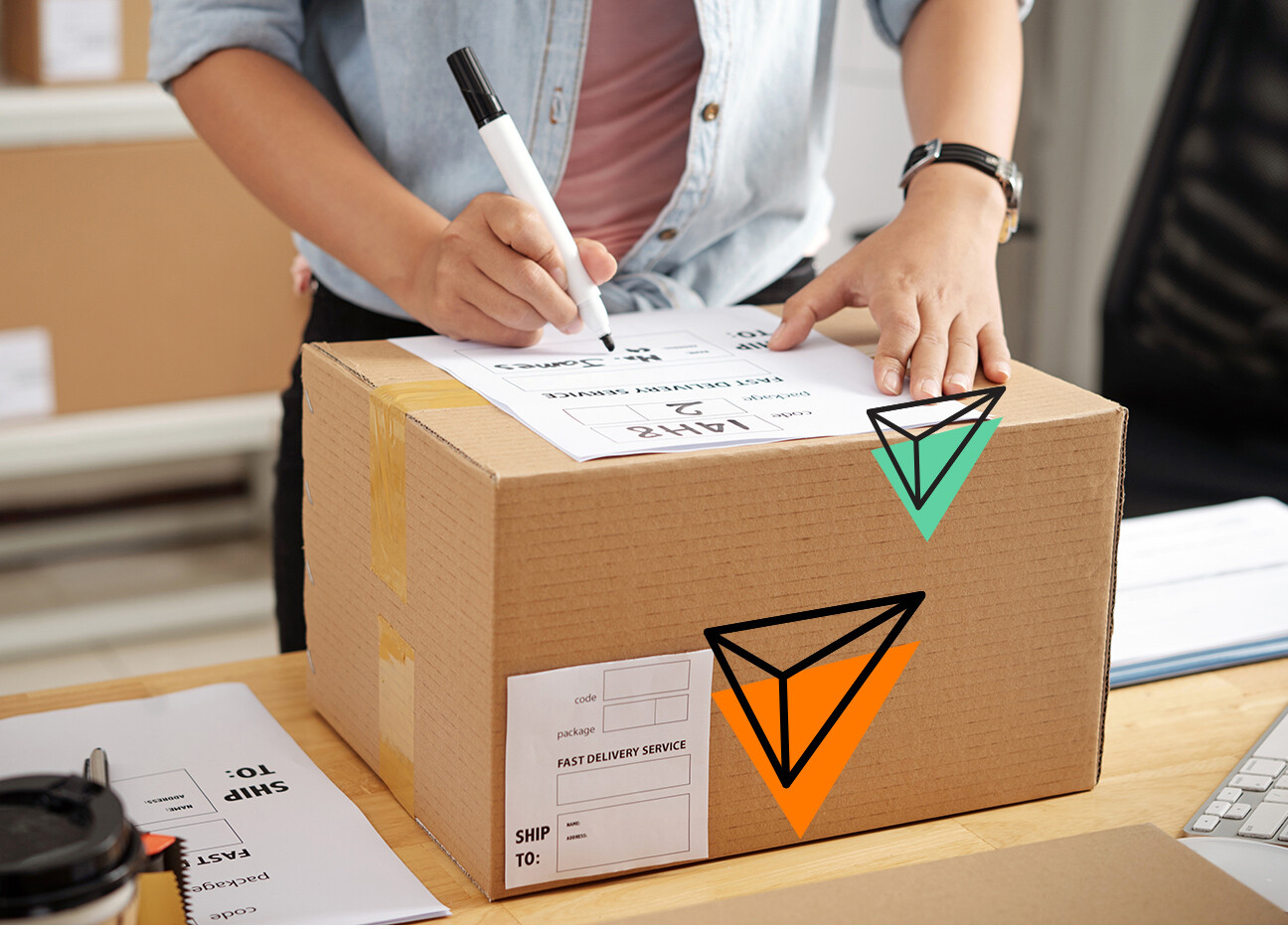Am I Able To
Sell My FBA Business?
Merchants may reach a point in time where they want to, or should even, sell their Amazon FBA business. When they get to this point, they may be wondering, “can I even sell it for what I know / believe it’s worth?”. Well, the answer is a bit loaded. In a lot of situations, you’ll be able to sell your Amazon FBA business, but there are a ton of factors that go into determining how much your FBA business could be worth to a potential buyer.
There are multiple factors that determine the worth of your business, but yes, you are able to sell your FBA business to an interested buyer. The valuation of an FBA business is determined by an abundance of factors, ranging from its age, SDE, type of FBA business, your vertical, sustainability, and much more that will be covered throughout this guide.

Your Type Of Business
There are different ways to sell products on Amazon, and different ways to go about obtaining the products and materials you need in order to successfully run your business. Over time, merchants have chosen different paths in the ways they decide to sell products and run their businesses. Some types of businesses are more suitable for some than others, seeing that they can grant advantages in areas where others cannot.
Certain types of businesses end up selling better than others, due to their advantages on the marketplace. The three different types of businesses most prevalent from Amazon third-party merchants are:
RESELLER
As a reseller on Amazon, you are constantly competing with other resellers for the buy box. At wholesale, you buy products, and create your margins by reselling these products on the Amazon marketplace. In this way of selling, there is often no reasonable limit to the amount of competition you face, and supply can be a problem. Essentially, you sell all different types of products in various categories and niches, pertaining to what you are able to obtain at the time. In this style of business, nothing is proprietary, so a potential buyer would only be purchasing Amazon Seller Central Account, and nothing else.
PRIVATE LABEL
With this type of business, merchants have a bit more control and organization within the outcome of their sales volume and day-to-day activities. As a private label, you sell existing products under your own private brand name on the Amazon marketplace. After taking the time to study a product(s) and market, you get in contact with manufacturers and suppliers, and they make it for you in bulk under your brand name. As a private label, you have have the ability to gravitate potential buyers towards your brand more than a reseller account because you have a more focused and steadier stream of like-products and sales.
Proprietary products
As a proprietary product distributor and seller, this means that you and your company are the only ones to sell a certain product(s). The fact that you have your own product and that it can’t be sold anywhere else. This type of business works for those who make their own products, or for those who enhance and make certain products better and sell them under their own brand. This type of business will likely sell at the highest dollar value possible compared to the two other types of Amazon FBA businesses. Since you have your own products, and likely a devoted customer base, potential buyers will be willing to pay more.
The differences carried in the means of operation between these types of FBA businesses have a direct effect on how well your Amazon FBA business will perform, ultimately affecting how much it will be price-listed for when you decide to put your business up for sale. Other factors that have a direct influence on the valuation of your Amazon FBA businesses will be discussed below, but the type of business you run will already determine a large portion of the valuation in the first place.
The Age Of Your Business
Generally, the longer you have had your Amazon FBA business running, the more data and detail you are able to supply to your potential buyer. With a snapshot of your business earnings, potential clients will be able to gain an idea as to how long it may take them to earn their money back after their initial investment. With a relatively long history of operation and sales, a buyer will be more inclined to purchase your FBA business.
As a rule of thumb, you should see it this way. Has your business run for less than one year? Probably not the best time to sell and should perhaps wait a little longer to build up reputation and sales volume.
Has your business run for between one and two years? At this point, you’re doing much better, and potential buyers will have more of an idea on how well your business has been performing.
Has your business run for over two to three years? Now your business has become much more solidified and organized in its means of operations and has likely achieved a steady flow of sales and product distribution. This will make potential buyers much more confident in their decision to take over your FBA business.
You should always keep in mind that the longer your FBA business has been operative, and the longer it has maintained a steady flow of sustained performance, the higher the price it will likely sell for. Also, with 2 years of operating history under your belt, you are able to apply for SBA (Small Business Administration) loans, which can provide you with financing for purchasing fixed assets.
Annual Net Profit (SDE / EBITDA)
When it comes to the success of selling your Amazon FBA business, one of the most important aspects is to keep a careful track record of your annual net profit, after multiple business expenses, hence EBITDA. This acronym stands for earnings before interest, tax, depreciation and amortization, and these are the business expenses and aspects that will be subtracted from your gross total income, giving you your net profit. EBITDA is used if your revenue surpasses $10 million.
If your revenue falls between $5 million – $10 million, or even lower, Seller Discretionary Earnings (SDE) will be used to assign a value to your business. SDEs follow this simple calculation:
SDE = Your Revenue – Cost of Goods Sold / Operating Expenses + Owner Compensation.
Common business expenses that merchants on Amazon deal with are shipping costs, packaging costs, storage costs, software, employees, various FBA fees, and other assorted expenses. Keeping track of your expenses throughout the year will lead to accurate net profit numbers to present to potential buyers, which will help to make the decision of purchasing your FBA business easier for them.

After determining your SDE, devising a multiple is used to give an approximate worth to your Amazon FBA business. The factors that determine the multiple you will use are determined by factors that relate to the sustainability, transferability and potential growth of your business. This multiple is applied to your annual net profit, and the number calculated is the estimated valuation of your company in dollar-value.
The older the business, and the more fiscal years it has passed with sustained performance, the higher the multiple will be. In this case, it would be upwards of 5x. For smaller FBA businesses that have less experience and not as big of a reputation in selling products, the multiple commonly falls around 3x. Good trends, owner involvement and age of the business are big factors in determining how high of a multiple you can rationally use.
For example:
$200K Net Profit x 3 = $600K Valuation
$10,000,000 x 5 = $50,000,000 Valuation
How Can I Make My Amazon FBA Business More Valuable?
In the world of selling products on Amazon, there are many levers you can use to improve your business daily. Various amounts of products are being sold on Amazon every day, and these products range from one extreme of the category spectrum to the other. If you can prove to a potential buyer that your business has strength and sustainability, they will be inclined to purchase your business.
If you find yourself in the position of wanting to sell your FBA business, or hope to in the future, there are things you could deliberately do now that will help enhance the success of your business, which will lead to you being able to sell your business for as high of a price as possible.
GOOD SUPPLIERS
Doing business with well-respected suppliers and forming good relationships with them will help to ensure the stability of your stock inventory and flow. You do not want to be in the position of having no stock for weeks after having a hot sales streak.
Working with an abundance of suppliers can look good, or bad, depending on how you handle it. Potential buyers likely want to be able to run the business with relative ease and having a ton of different contracts and product distribution agreements with multiple suppliers can overwhelm a potential buyer. If you are able to automate this work, or outsource it, it will help to enhance the valuation of your business.
MIX OF PRODUCTS TO SELL
Having a sustainable business model can often mean that the merchant sells a various number of products and receives a relatively equal amount of their annual profit from each product being sold. Many merchants have taken advantage of diving into niches and selling as many different items as possible. This may sound good on paper, but it is imperative to take into consideration what percentage of your revenue each product-type accounts for.
If you sell multiple products, but one product accounts for 75%-90% of your revenue, you can’t really say that you have a multiple-product business. You face a lot of competition within the Amazon marketplace, so if your product can be sourced by other merchants at right around the same price, then the longevity and sustainability of your business model must come into question.
Straying away from products that tend to fluctuate in price consistently can help ease the nerves of potential buyers. With smarter products being sold, the more content your potential buyer will likely be. A smart product is one that consistently sells well at most times of the year, and doesn’t commonly experience radical changes in price. Thorough and careful product research will lead you to products that have a long-running track record of sustained high-sales performance.
BRAND PROTECTION
By registering through Amazon’s Brand Registry, the integrity of your brand and products will be ensured by preventing other merchants from selling products on your listing. Having a defendable business is a huge factor that plays into the valuation of your Amazon FBA business. As mentioned, you face massive amounts of competition when selling products on Amazon, so you should be doing everything you can to help protect the image and reputation of your brand.
A highly defensible business is one that has devoted customer service, sells their own proprietary products, and out-does other competitor products in terms of sales performance.
ADVERTISING
Likely, you are already aware of the effect that advertising can have on the success of your FBA business. With advertising being implemented in the right way, you increase the chances of having more traffic flow into your store and product listings. If you commonly and consistently put out advertisements pertaining to your correct target audience, your image and presence will grow, ultimately leading to the potential sales and traffic boost.
Just putting out advertisements is not exactly enough. You need to be able to prove on paper that the money you have spent on advertisements has had a direct effect on the profit generated shortly thereafter. If paid marketing has worked for you and your business, this creates just another interesting aspect of your business that is attractive to potential buyers.

Final Answer: Yes, But It Can Be Complicated
In the growing world of the Amazon marketplace, many merchants are currently doing whatever they can within their power to create a profitable FBA business. This can be a long process, and it includes multiple factors that can have a direct influence on the success of it.
When it comes to selling your Amazon FBA account, be sure to consider all aspects of your business, and be realistic with the rational valuation that could be placed on it. Keeping a careful track record of annual net profit, operation costs, and other aspects is crucial in helping to place a valuation with ease. The longer your business has been active, and the better it has fared throughout different fiscal years, will end up being big factors in determining the worth of your business!